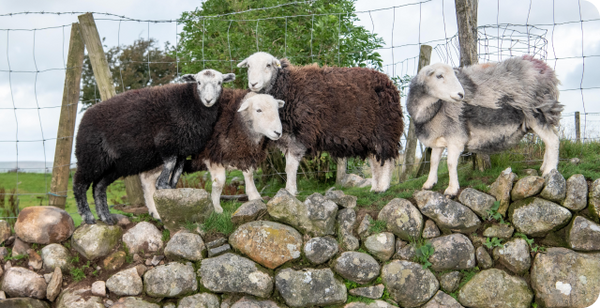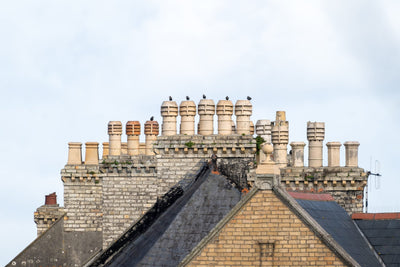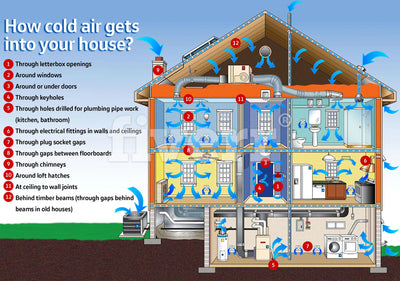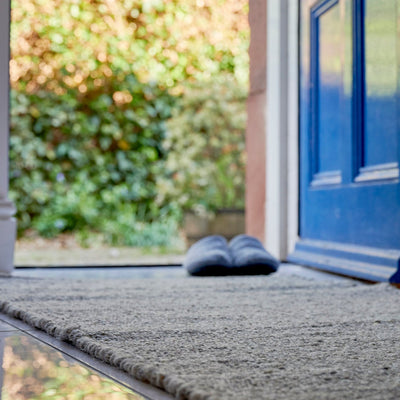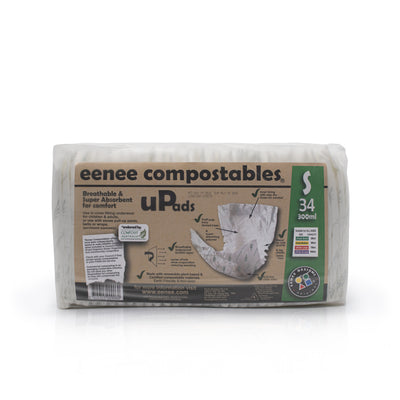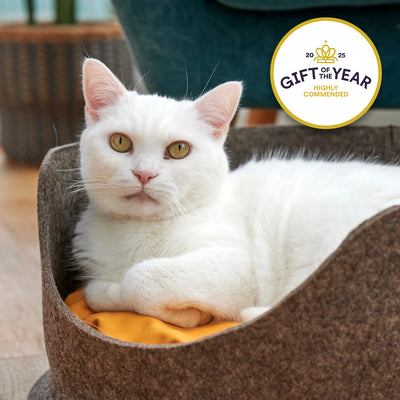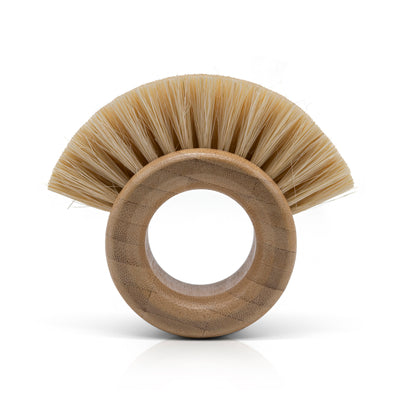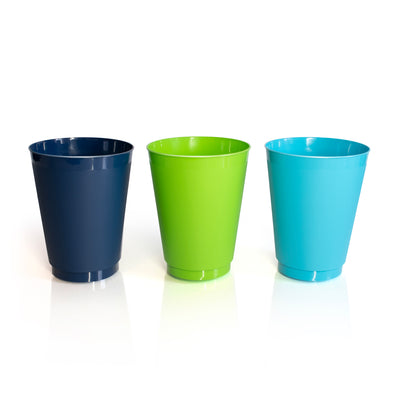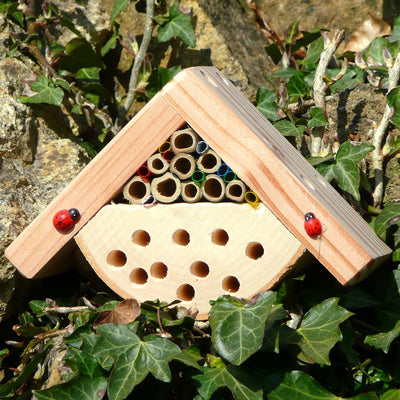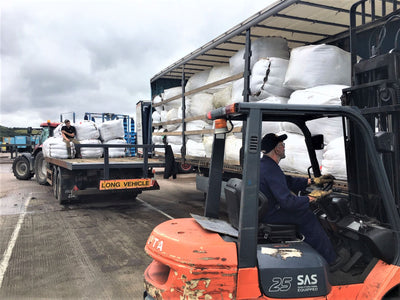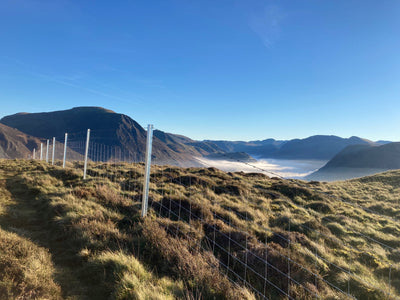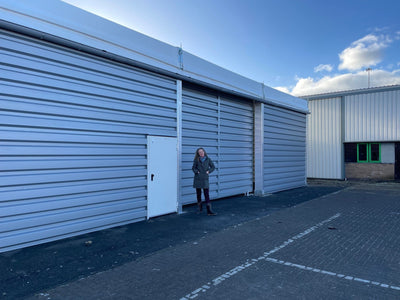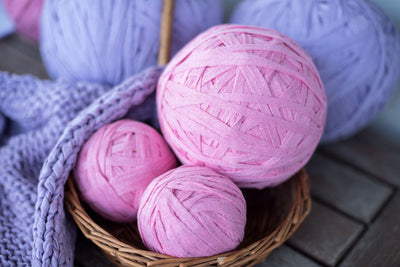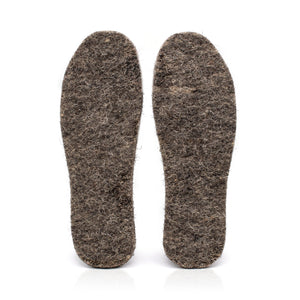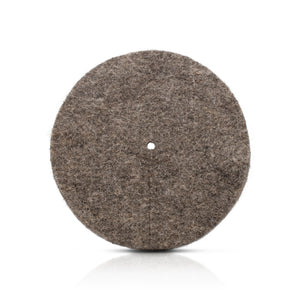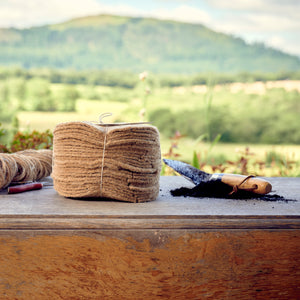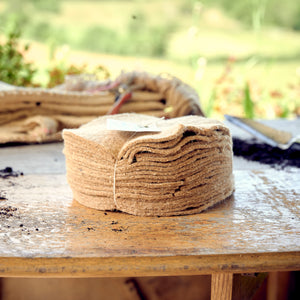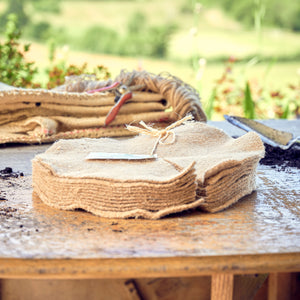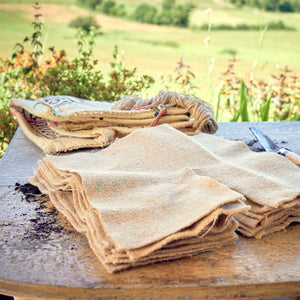What were these bags originally used for?
As part of our mission to provide customers with natural, ethical, chemical free home improvement products we partnered up with Sheep Wool Insulation to ensure we can offer customers the best of the best when it comes to natural insulation choices. But, in order get the insulation to us, it needs to go on a pretty significant journey to reach our Lake District Warehouse. These big wool bags are what protects this insulation on its journey, directly from its source to us. These big wool bags are made of the same, or very similar material to brand new tarpaulin, they’re tough, chunky and weather resistant – the perfect choice when it comes to transporting wool insulation across the country to our warehouse.
All of the wool bags we’re offering for sale are pre-loved – so they’ve been used to help us in our mission to provide customers with natural, ethical, chemical free sheep’s wool products for use in the home, they have plenty of life left in them. They’re just too good to recycle which is why we’re offering them up as a cost effective, more eco-conscious choice to purchasing new virgin plastic tarpaulin. They’re effectively a giant bag for life, made of tough, pre-loved plastic tarp – perfect for repurposing. There will be signs of wear on each bag, this may be a few scuffs or stains – but we’ll ensure there’s no damage that would impact the integrity of the product so you will still be able to use it as you wish!
Can these be used as an alternative to new tarpaulin?
These bags are ridiculously multi-purpose. They’re made of tough, thick, weather resistant plastic, plus they’re huge! They could be repurposed in a multitude of ways including the perfect alternative to purchasing new tarpaulin – if you didn’t want a 3D bag, you’d simply have to cut open the corners and you’d be left with a large piece of plastic you could use to line anything.
For the gardening enthusiasts. These bags come readily planter shaped – so provided your planter is vaguely a similar size, these bags are ready to just pop in place – they are very deep so you may need to give the top a trim or fold over the excess but they are a very accessible alternative to using tarp or flat plastic liners to line your planting boxes!
For the DIY’ers or home improvement enthusiasts – they’re the perfect big rubble bag. When you’re undertaking a building project the last thing you need to think about is if you’ve got a big enough rubble bag to store all your big , lightweight rubble that you don’t want left around the home. They’re pretty puncture proof, and great containers so they’d be great for storing things like insulation, plasterboard, wood offcuts and flooring.
But, they’re plastic, just like new tarpaulin?
This is true! These wool bags are made from virgin plastic, something we’re trying our best to reduce our consumption of as much as possible. However, by offering these multi-purpose used wool bags for resale we’re hoping to provide an alternative to brand new plastic tarps and liners – that are just as effective. By purchasing repurposed plastic items, you are reducing demand for new, single use, virgin plastics such as tarps and sheeting – by choosing used, you’re reducing your impact on the environment. Over time, if you continue to choose used you’ll be helping to reduce the amount of plastic that ends up in our oceans, reducing the amount of waste sent to landfill and reducing societies demands on the oil sector – all incredibly important steps we need to take as a society to help protect our vulnerable environment.
Can I make any other eco-friendly DIY choices?
Of course! Whether you’re undertaking a home revamp or DIY gardening project, there’s always things you can do to ensure you’re being as environmentally friendly as can be.
Choose reusable where possible, things like rubber seed planters and metal hanging baskets will last a life time compared to their plastic counterparts (which tend to fall to pieces in a year or so).
If you’re choosing materials, look at their sourcing information – things like wood can be sourced from FSC certified suppliers, and composts can be sourced peat free and ethically from suppliers in the UK. (We actually sell wool compost – take a look here!)
What were these bags originally used for?
As part of our mission to provide customers with natural, ethical, chemical free home improvement products we partnered up with Sheep Wool Insulation to ensure we can offer customers the best of the best when it comes to natural insulation choices. But, in order get the insulation to us, it needs to go on a pretty significant journey to reach our Lake District Warehouse. These big wool bags are what protects this insulation on its journey, directly from its source to us. These big wool bags are made of the same, or very similar material to brand new tarpaulin, they’re tough, chunky and weather resistant – the perfect choice when it comes to transporting wool insulation across the country to our warehouse.
All of the wool bags we’re offering for sale are pre-loved – so they’ve been used to help us in our mission to provide customers with natural, ethical, chemical free sheep’s wool products for use in the home, they have plenty of life left in them. They’re just too good to recycle which is why we’re offering them up as a cost effective, more eco-conscious choice to purchasing new virgin plastic tarpaulin. They’re effectively a giant bag for life, made of tough, pre-loved plastic tarp – perfect for repurposing. There will be signs of wear on each bag, this may be a few scuffs or stains – but we’ll ensure there’s no damage that would impact the integrity of the product so you will still be able to use it as you wish!
Can these be used as an alternative to new tarpaulin?
These bags are ridiculously multi-purpose. They’re made of tough, thick, weather resistant plastic, plus they’re huge! They could be repurposed in a multitude of ways including the perfect alternative to purchasing new tarpaulin – if you didn’t want a 3D bag, you’d simply have to cut open the corners and you’d be left with a large piece of plastic you could use to line anything.
For the gardening enthusiasts. These bags come readily planter shaped – so provided your planter is vaguely a similar size, these bags are ready to just pop in place – they are very deep so you may need to give the top a trim or fold over the excess but they are a very accessible alternative to using tarp or flat plastic liners to line your planting boxes!
For the DIY’ers or home improvement enthusiasts – they’re the perfect big rubble bag. When you’re undertaking a building project the last thing you need to think about is if you’ve got a big enough rubble bag to store all your big , lightweight rubble that you don’t want left around the home. They’re pretty puncture proof, and great containers so they’d be great for storing things like insulation, plasterboard, wood offcuts and flooring.
But, they’re plastic, just like new tarpaulin?
This is true! These wool bags are made from virgin plastic, something we’re trying our best to reduce our consumption of as much as possible. However, by offering these multi-purpose used wool bags for resale we’re hoping to provide an alternative to brand new plastic tarps and liners – that are just as effective. By purchasing repurposed plastic items, you are reducing demand for new, single use, virgin plastics such as tarps and sheeting – by choosing used, you’re reducing your impact on the environment. Over time, if you continue to choose used you’ll be helping to reduce the amount of plastic that ends up in our oceans, reducing the amount of waste sent to landfill and reducing societies demands on the oil sector – all incredibly important steps we need to take as a society to help protect our vulnerable environment.
Can I make any other eco-friendly DIY choices?
Of course! Whether you’re undertaking a home revamp or DIY gardening project, there’s always things you can do to ensure you’re being as environmentally friendly as can be.
Choose reusable where possible, things like rubber seed planters and metal hanging baskets will last a life time compared to their plastic counterparts (which tend to fall to pieces in a year or so).
If you’re choosing materials, look at their sourcing information – things like wood can be sourced from FSC certified suppliers, and composts can be sourced peat free and ethically from suppliers in the UK. (We actually sell wool compost – take a look here!)


